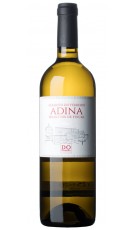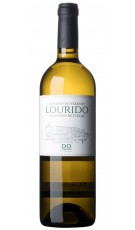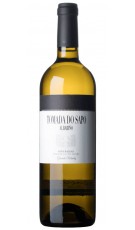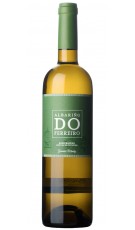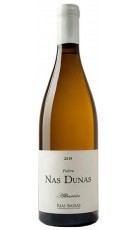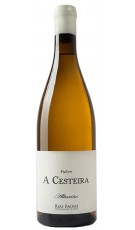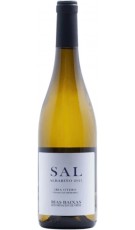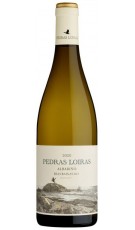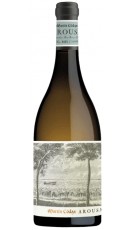
Galicia There are 215 products.
En el siglo XIV, Galicia exportaba esquejes a otros viñedos europeos. En el siglo XIX, toda la región sufrió una economía deprimida y muchos viñedos se abandonaron por la despoblación al emigrar los trabajadores. Los trabajadores de la vendimia gallega fu...
Catalog
-
Raul Pérez Sketch 2022
White Wine.RAÚL PÉREZ VITICULTORBierzoWhite wine made from Albarino grapes. Vineyards cultivated with the utmost respect for the environment, in Rías Baixas.
Reduced price! -
Rosa Ruiz Albariño 2022
White WineSANTIAGO RUIZRías BaixasWhite Wine, 5 months with its less
Reduced price!In stock -
Fulcro A Pedreira 2022
White Wine.BODEGAS FULCRORías BaixasFulcro A Pedreira is a single-varietal Albariño white wine from Finca A Xesteira, one kilometer from the island of Ons, in Sanxenxo. Its 11-month aging in barrels brings complexity and a...
Reduced price! -
Do Ferreiro Adina 2022
White Wine.GERARDO MÉNDEZRías BaixasIt is the wine that most defines their philosophy. It comes from lands of decomposed granite and poor in organic matter. Its name is a declaration of principles that metaphorically summarizes the...
Reduced price! -
Do Ferreiro Lourido 2022
White Wine.GERARDO MÉNDEZRías BaixasIt is the wine that most defines their philosophy. It comes from lands of decomposed granite and poor in organic matter. Its name is a declaration of principles that metaphorically summarizes the...
Reduced price! -
Do Ferreiro Tomada do Sapo...
White Wine.GERARDO MÉNDEZRías BaixasIt is the wine that most defines their philosophy. It comes from lands of decomposed granite and poor in organic matter. Its name is a declaration of principles that metaphorically summarizes the...
Reduced price! -
Do Ferreiro Albariño 2023
White Wine.GERARDO MÉNDEZRías BaixasIt is the wine that most defines their philosophy. It comes from lands of decomposed granite and poor in organic matter. Its name is a declaration of principles that metaphorically summarizes the...
Reduced price!In stock -
Nas Dunas 2020
White Wine.BODEGAS FULCRORías BaixasNas Dunas is a single-varietal Albariño white wine from Finca A Xesteira, one kilometer from the island of Ons, in Sanxenxo. Its 11-month aging in barrels brings complexity and a...
Reduced price! -
A Cesteira 2021
White Wine.BODEGAS FULCRORías BaixasA Cesteira is a single-varietal Albariño white wine from Finca A Xesteira, one kilometer from the island of Ons, in Sanxenxo. Its 11-month aging in barrels brings complexity and a...
Reduced price! -
Sal de Albariño 2024
White Wine.IRIA OTERORías BaixasIria Otero Sal Albariño, a wine with soul and without haste. Pure reflection of the environment and the history of the Ribeiro.
Reduced price!In stock -
Pedras Loiras Albariño 2023
White Wine.Rías BaixasWhite wine DO Rías Baixas by Marcos Lojo.
Reduced price! -
Martín Códax Arousa 2021
White WineMARTÍN CÓDAXRías BaixasThe wine is born from a careful selection of plots caressed by the sea, in the area of San Tomé in Cambados. Vineyards that grow at the mouth of the Umia, cultivated by winegrowers with a...
Reduced price!In stock
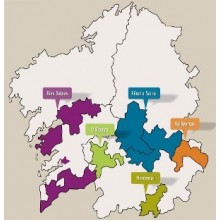
En el siglo XIV, Galicia exportaba esquejes a otros viñedos europeos. En el siglo XIX, toda la región sufrió una economía deprimida y muchos viñedos se abandonaron por la despoblación al emigrar los trabajadores. Los trabajadores de la vendimia gallega fueron en parte los que contribuyeron con su labor a desarrollar los viñedos en bancales de la región del vino de Oporto del Duero. Cuando España entró a formar parte de la Unión Europea en 1985, comenzaron a llegar fondos a Galicia que ayudaron al resurgimiento de la industria vitivinícola.

(+34) 91 129 11 11
(+34) 638 458 218
- Brandy
- Cognac
- Gin Premium
- Ron
- Whisky
- Denomination of Origin
- Winery






















